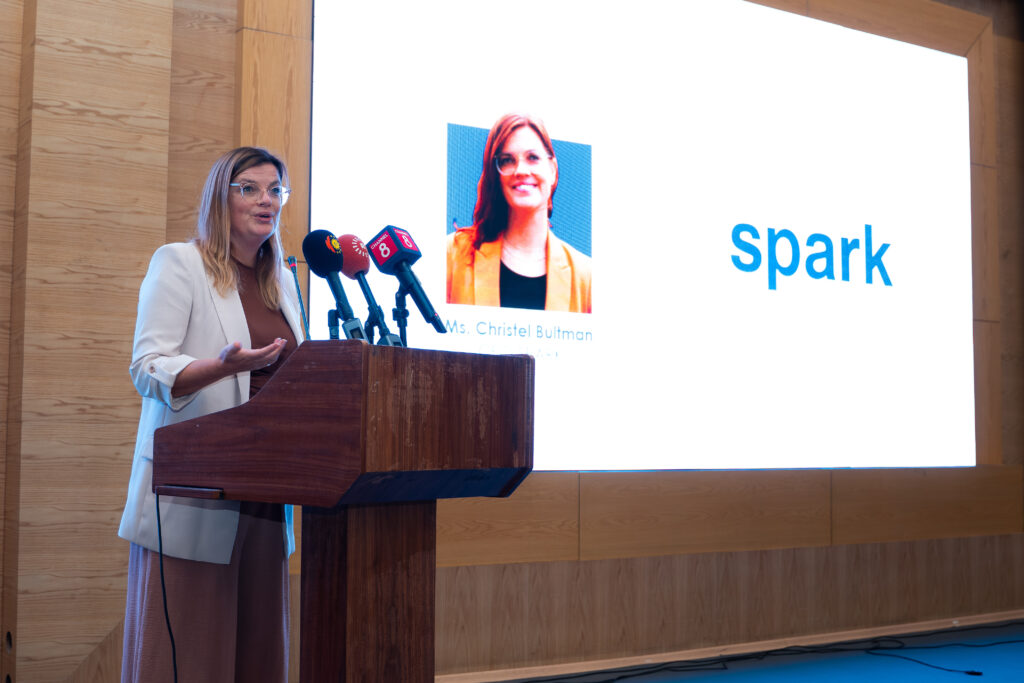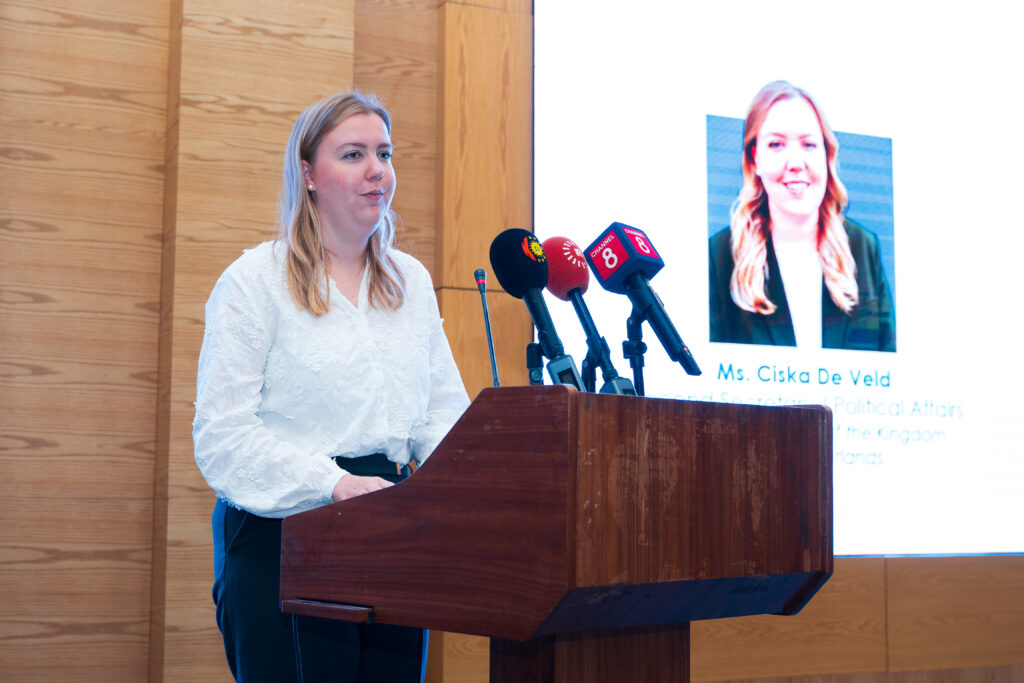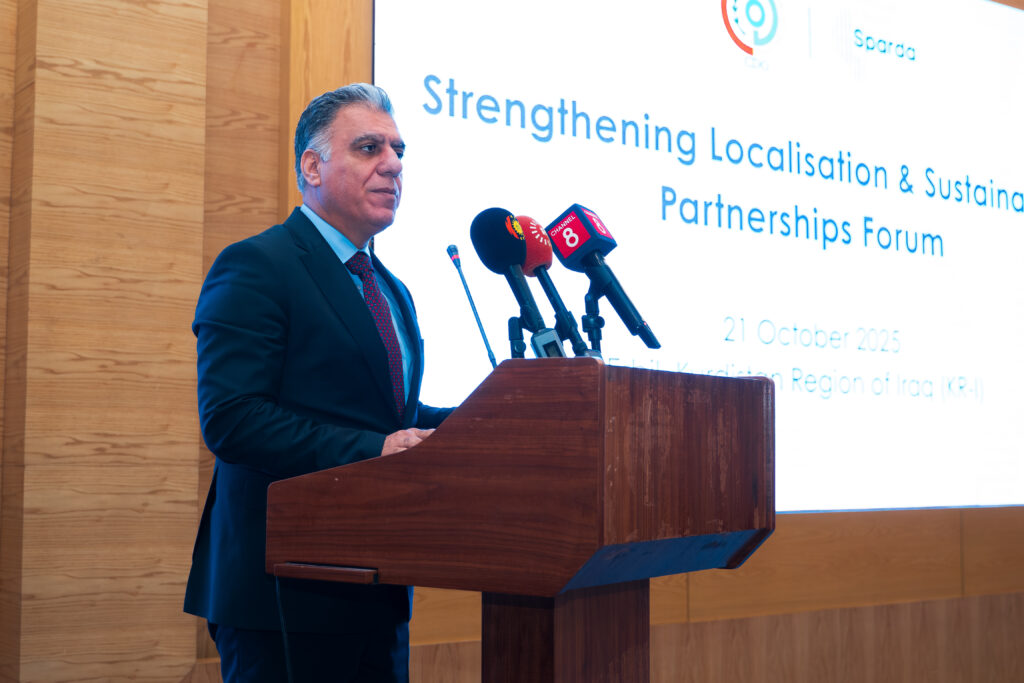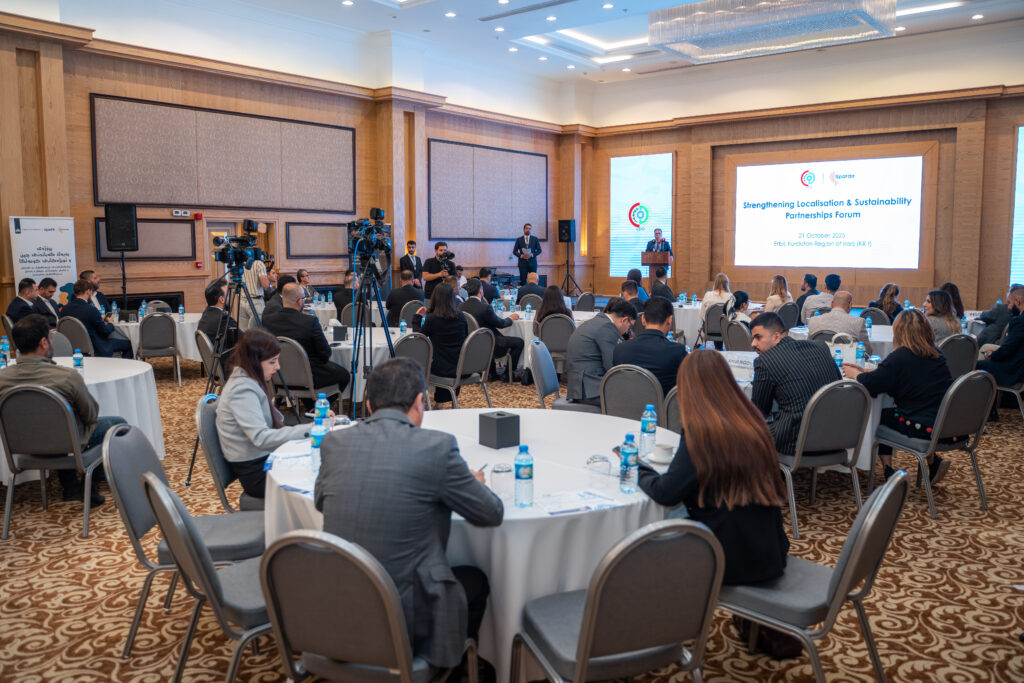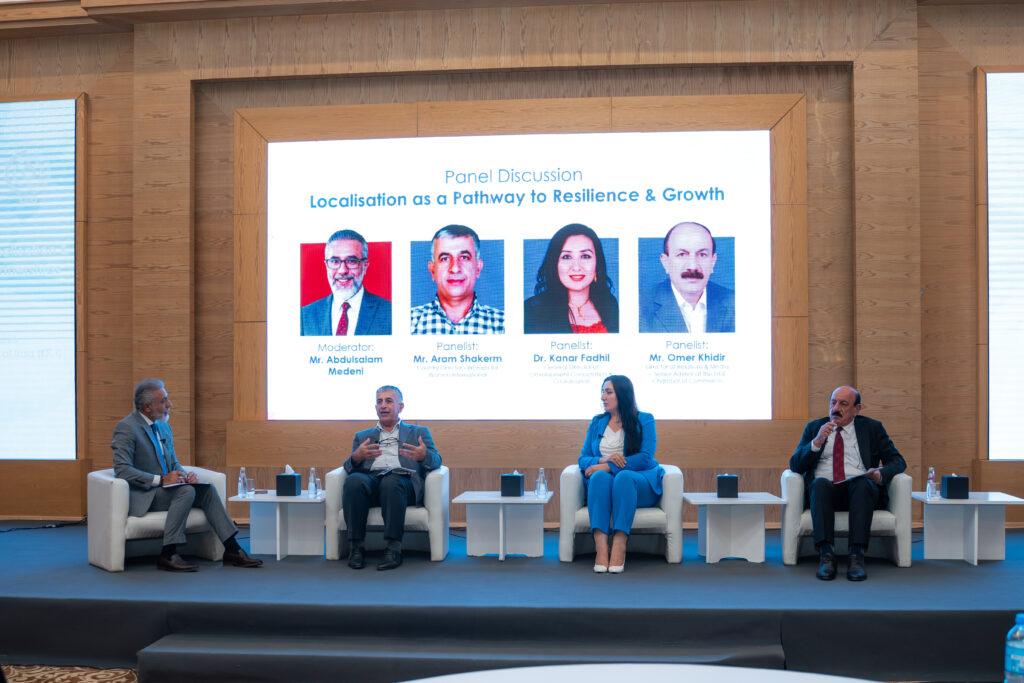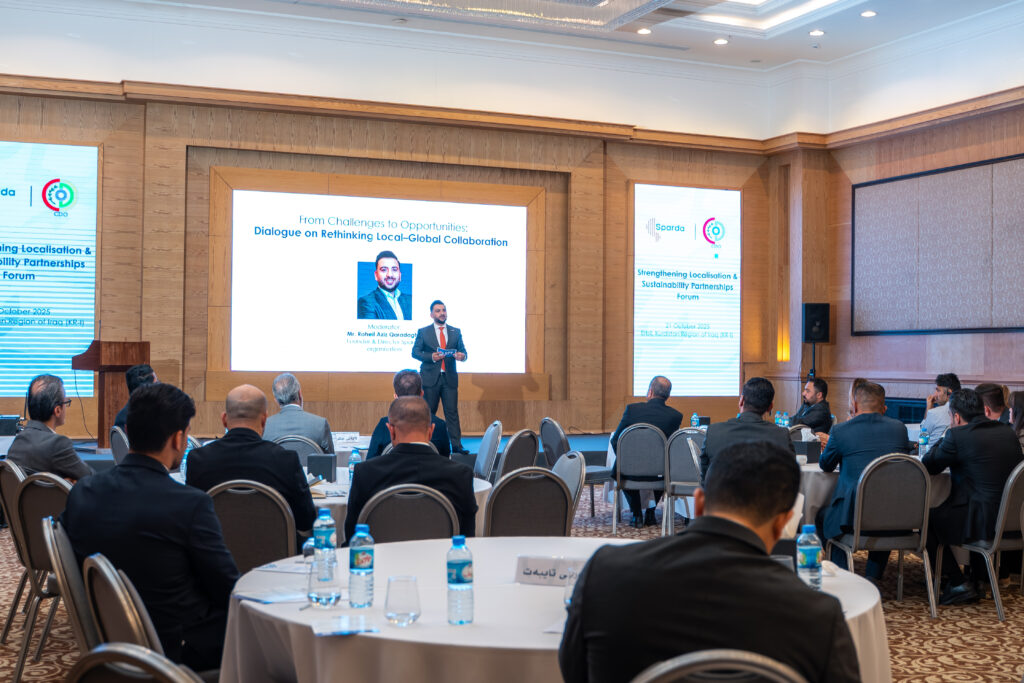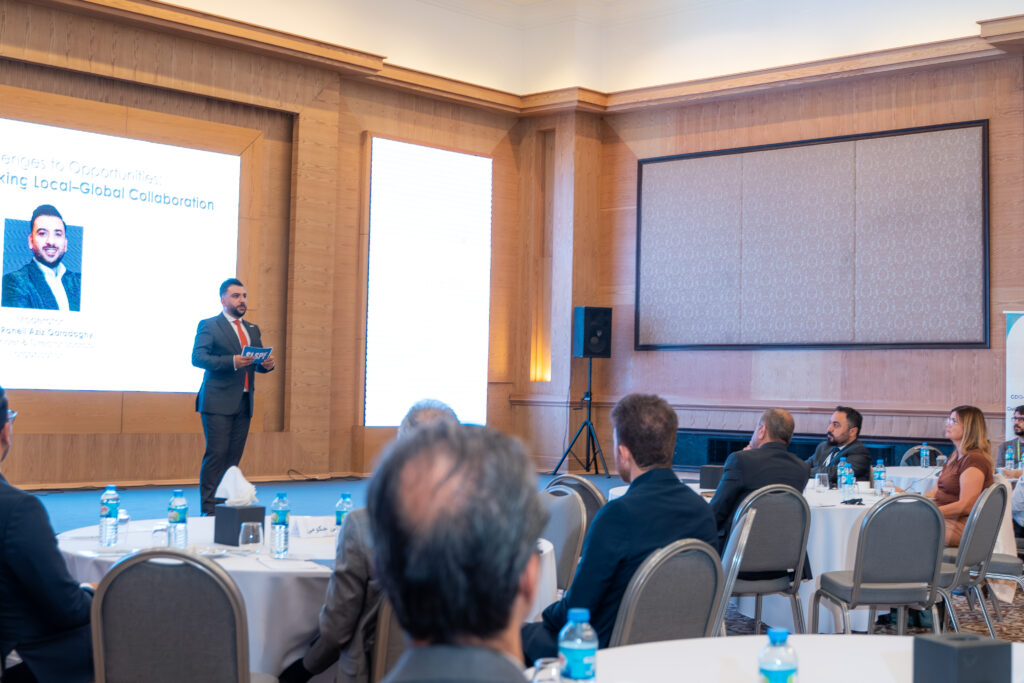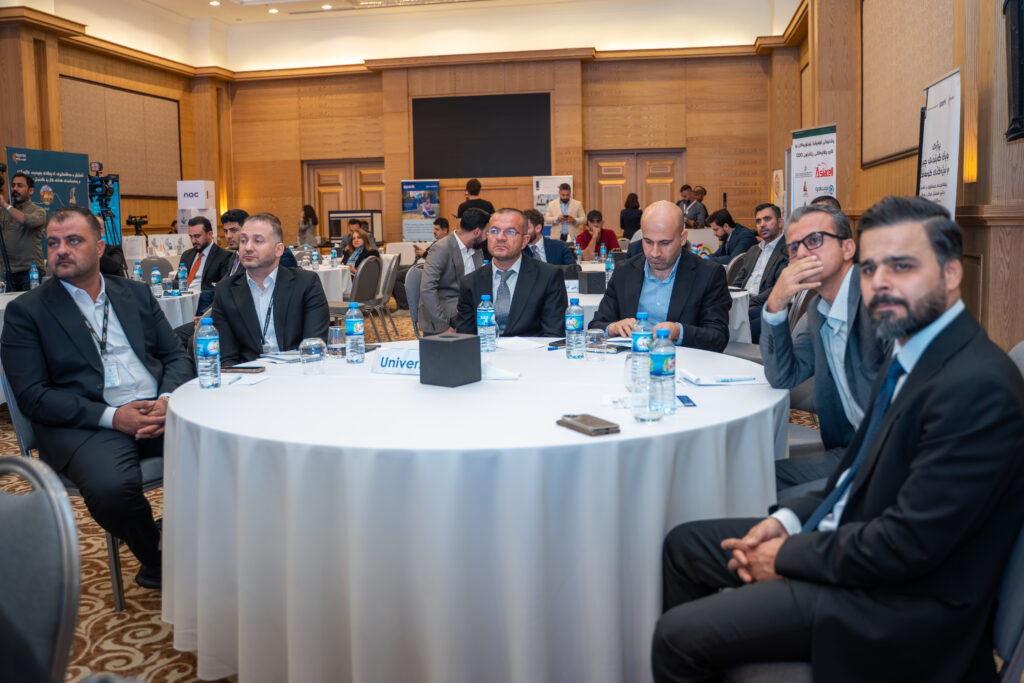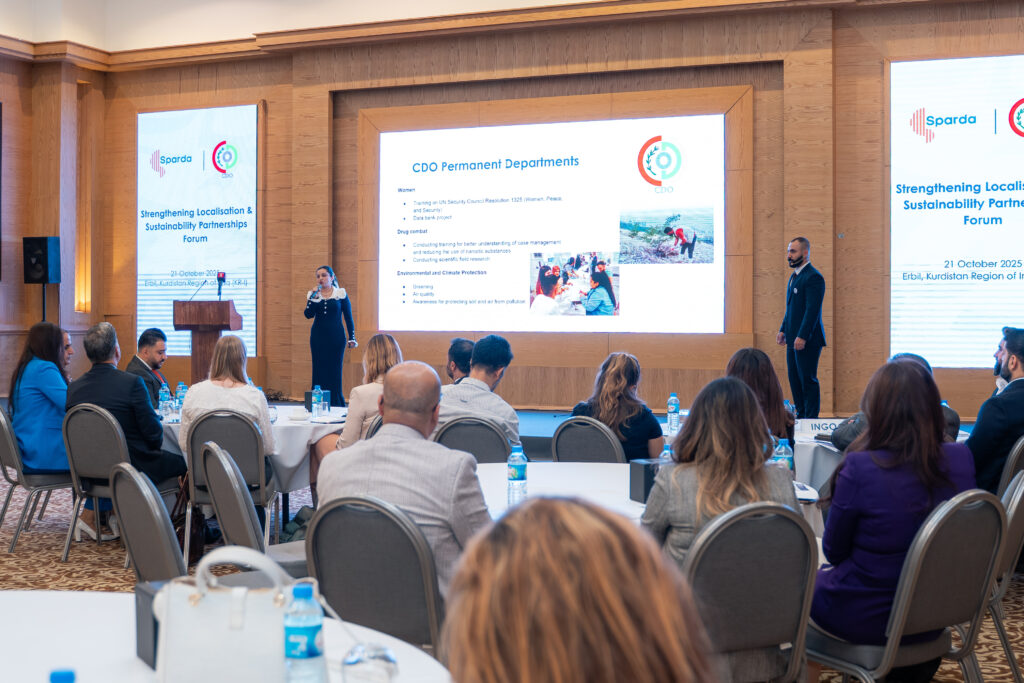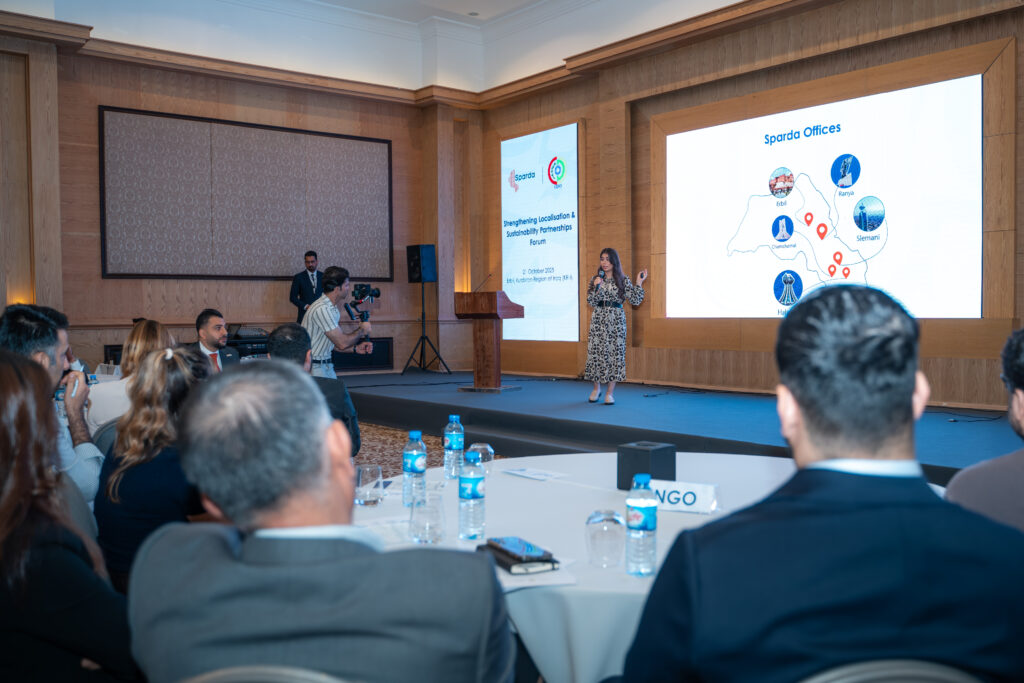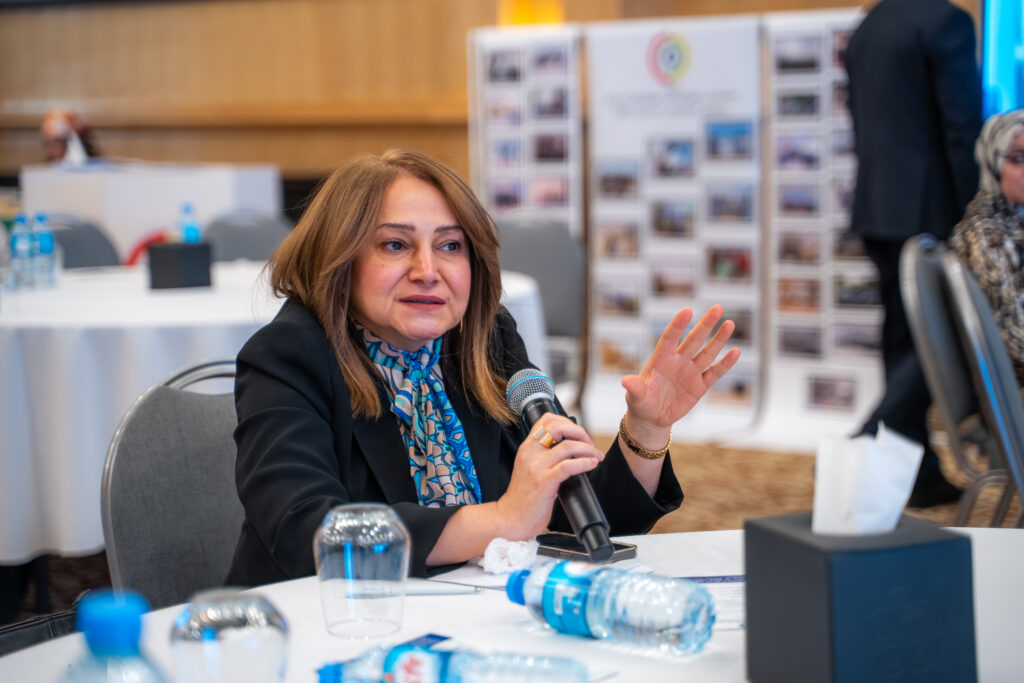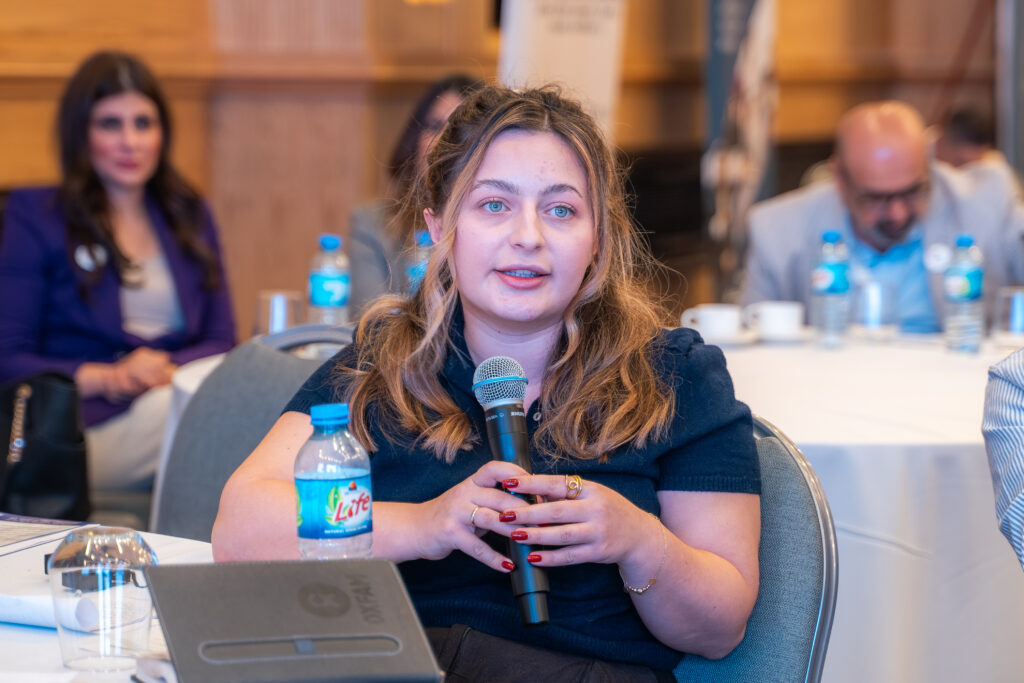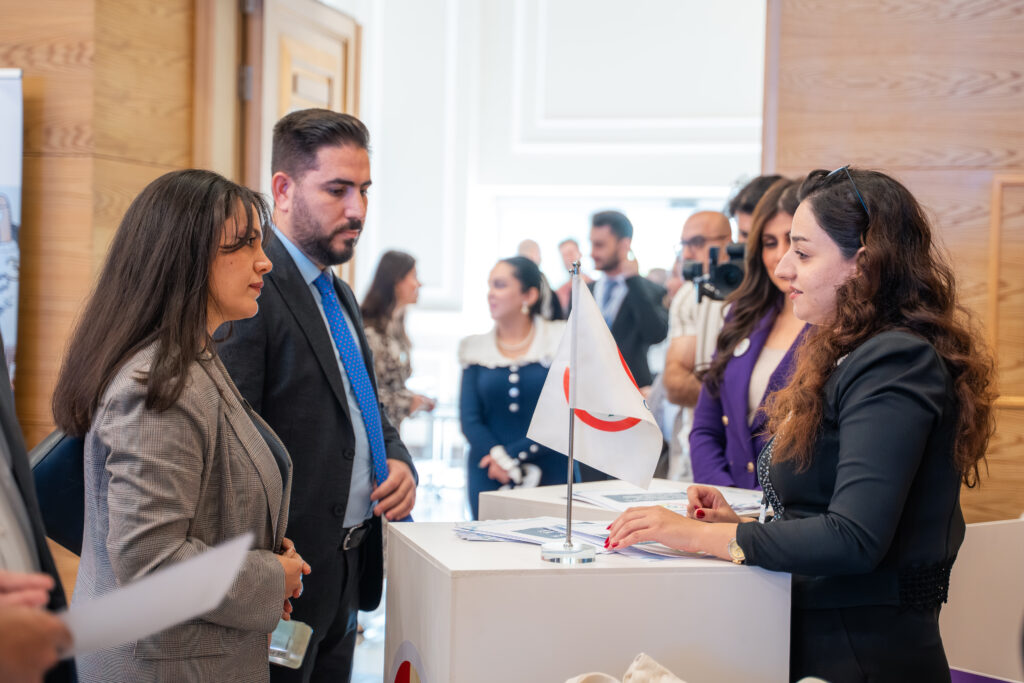Building sustainable futures: Erbil forum paves way for localisation in Kurdistan Region
Multi-stakeholder gathering brings together government, local private companies, and civil society to strengthen local ownership and reduce international aid dependency
On 21 October 2025, the “Strengthening Localisation & Sustainability Partnerships Forum” convened in Erbil, bringing together local partners, private companies, government representatives, international NGOs, and international delegations. The forum explored how localising efforts, funds, and projects can drive resilience, growth, and sustainable impact across communities in the Kurdistan Region of Iraq (KRI).
The event was organised by Civil Development Organisation (CDO) and Sparda, two local organisations working as partners of SPARK under its localisation strategy within the Networks Of Change II (NOCII) programme, funded by the Netherlands Ministry of Foreign Affairs.
A unified call for local ownership
In their keynote addresses, Ms. Ciska De Veld, Second Secretary at the Consulate-General of the Kingdom of the Netherlands, Christel Bultman, CEO of SPARK, and Dr. Muhammed Kalari, Director General at the Ministry of Higher Education and Scientific Research, delivered a unified message: international support will gradually diminish, making local ownership essential for long-term sustainability and prosperity. True progress in the Kurdistan Region, they emphasized, will only emerge through strong partnerships, localisation, and local leadership.
“Local NGOs can overcome the challenge of shrinking funds through stronger partnerships and collaboration with local private companies and other NGOs,” said Ms. Ciska De Veld, Second Secretary at the Consulate-General of the Kingdom of the Netherlands.
“We should view the depletion of funds from international organisations in the Kurdistan Region as an opportunity to foster stronger collaboration between local private companies and NGOs,” added Christel Bultman, CEO of SPARK.
Showcasing local capacity
The forum featured inspiring showcases by Sparda and CDO, followed by a thought-provoking panel discussion and dialogue session. These segments highlighted how collaboration between local and international actors can transform challenges into opportunities while strengthening resilience and community impact across the KRI.
“The panel, with its good diverse representation from different sectors, tackled very essential topics that would help a smooth localisation transition,” said Mr. Abdulsalam Medeni, the panel moderator.
Multi-stakeholder dialogue and key outcomes
The dialogue session proved particularly valuable in establishing meaningful connections across sectors. SPARK, Sparda, and CDO successfully facilitated linkages between government officials, donor representatives, civil society organisations, and private sector leaders to discuss joint implementation of sustainable, locally led initiatives. The event also served as a multi-stakeholder feedback mechanism for donor representatives in attendance.
The forum created an excellent networking opportunity for CDO and Sparda, establishing a trusted space for participants to connect, exchange ideas, and form new partnerships. This environment fostered potential future collaborations and joint initiatives that extend beyond the event itself.
Participants engaged in robust exchanges of best practices, challenges, and innovative approaches to improve aid effectiveness and empower local actors. These discussions led to the identification of actionable steps and partnership opportunities that can enhance localisation and sustainability in upcoming projects and programmes across the KRI.
Private sector engagement and CSR framework
A key theme emerged from local private sector participants: the need for a centralized corporate social responsibility (CSR) framework in the KRI. They proposed a system where government and municipal priorities are established in collaboration with local NGOs and civil society, with CSR initiatives reflecting these identified needs. Private sector companies would then serve as major supporting partners in advancing these coordinated efforts.
“Local NGOs, just like international organisations, have great capacity and are fully capable of implementing impactful projects and programmes,” noted Aram Shakerm, Country Manager at Women for Women International.
“The Chamber of Commerce has always supported local initiatives, a great example of this was during the ISIS conflict and the COVID-19 pandemic, when companies contributed to emergency causes through the Chamber,” said Mr. Omer Khidir, Director of Relations & Media and Senior Advisor at the Erbil Chamber of Commerce. “Several companies also have large annual budgets that are allocated to civil society through non-programmatic charitable initiatives,” he added.
Looking forward
The forum concluded with clear commitments from all stakeholders. Participants emphasised the government’s strategic role in facilitating private sector donations, while private sector representatives expressed strong readiness to contribute meaningfully to civil society causes.
A crucial insight emerged regarding local NGOs: participants recognised these organisations as essential facilitators that can make corporate donations more systematic, efficient, and aligned with community needs.
Related news
-
![]() Report
ReportSPARK 2024: Annual report highlights
-
![]() News
News“Work for Work” Campaigners Share Outcomes at Major Press Conference in Sulaymaniyah
In a press conference held at the Civil Development Organisation office in Sulaymaniyah, youth campaigners from Halabja, Ranya, and Chamchamal…
-
![]() News
NewsCreating safer learning environments in Iraq’s Kurdistan Region
In response to the growing need for psychological support within educational settings, SPARK is piloting a network of safe spaces…
-
![]() News
NewsChamchamal Hosts Its First-Ever Job Fair
Chamchamal hosted its first-ever job fair as part of SPARK’s “Work for Work” campaign, implemented in partnership with CDO and…
-
![]() News
NewsEmpowering Educators to Support Youth and Promote Moderation
-
![]() News
News“Work For Work” campaign events in Ranya, Chamchamal and Halabja increasing youth employability
In February, campaigners from the Work for Work campaign part of the Networks of Change II programme, led a series…
-
![]() Event
EventEmpowering voices: Networks of Change 2 campaigners receive comprehensive media training in Erbil
-
![]() Event
Event8 Reasons why you should join the Maharat for Tourism E-Learning Hub
Are you passionate about tourism and eager to boost your career in the industry? SPARK created The Maharat for Tourism…
-
![]() Event
EventStronger together: How Kurdistan’s communities are leading the fight against extremism
From 19th to 21st January 2025, local committees from Halabja, Chamchamal, and Ranya took part in a P/CVE (Preventing and…
-
![]()
2023 Annual Report
-
![]()
Creating pathways to employment: The Work for Work Campaign
-
![]()
Youth hubs in the Kurdistan region of Iraq: Empowering youth, shaping the future
-
![]()
“Don’t Go, Fix It”: Boosting youth activism in the Kurdistan Region of Iraq

